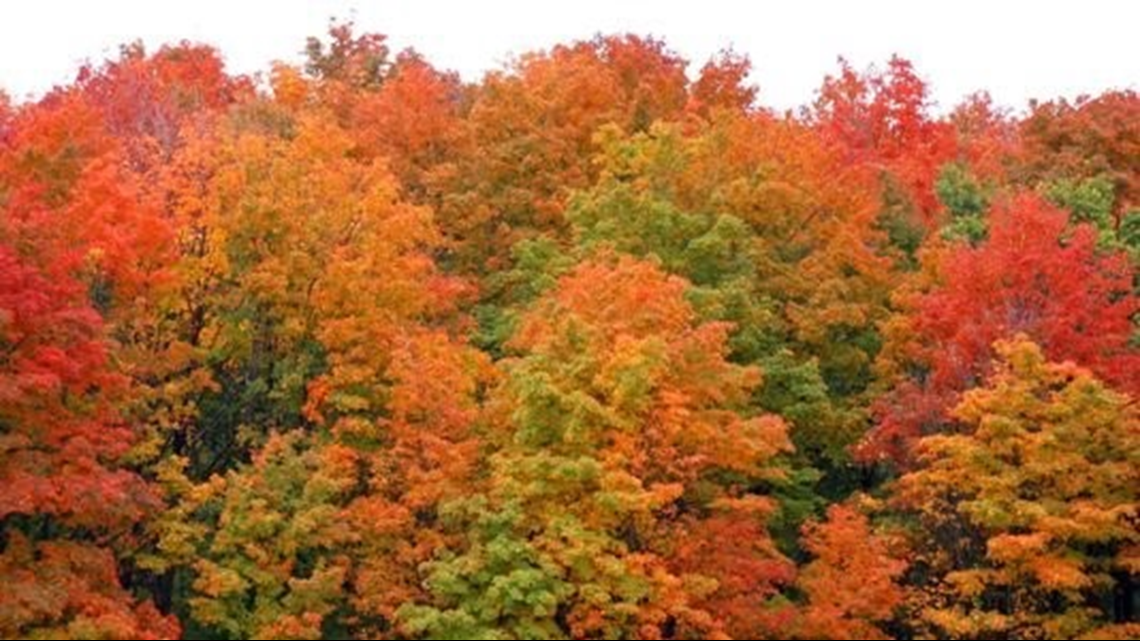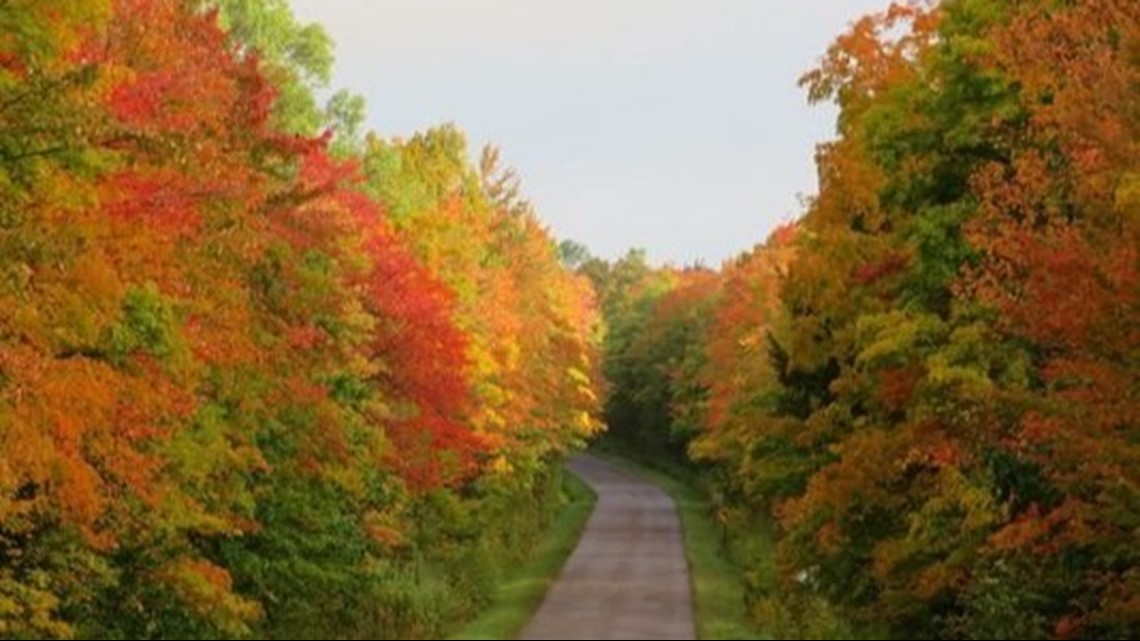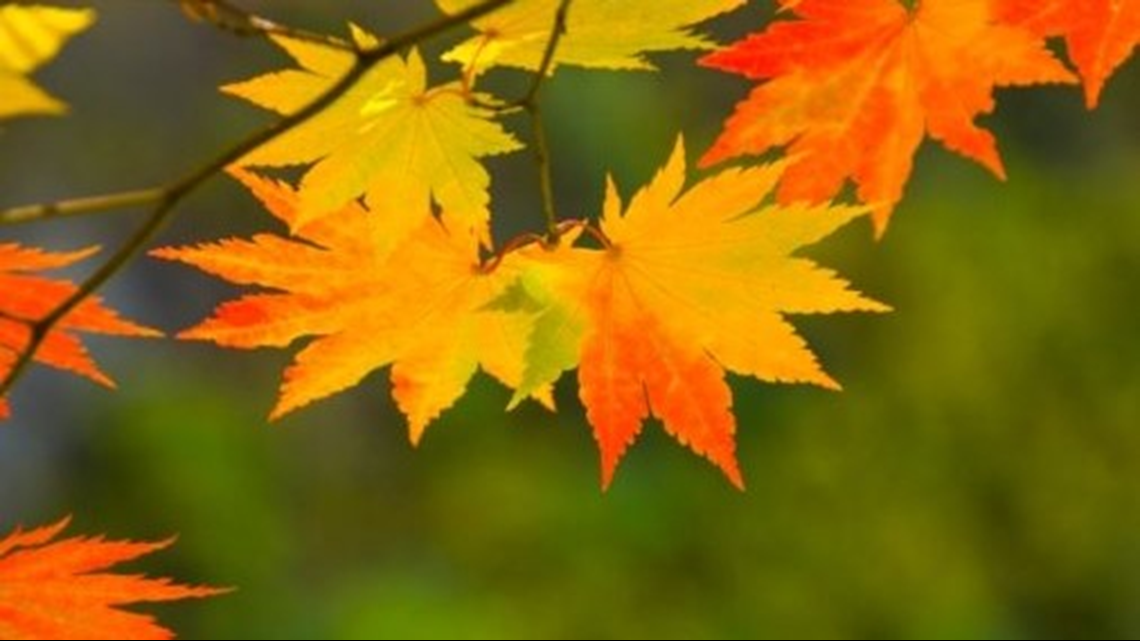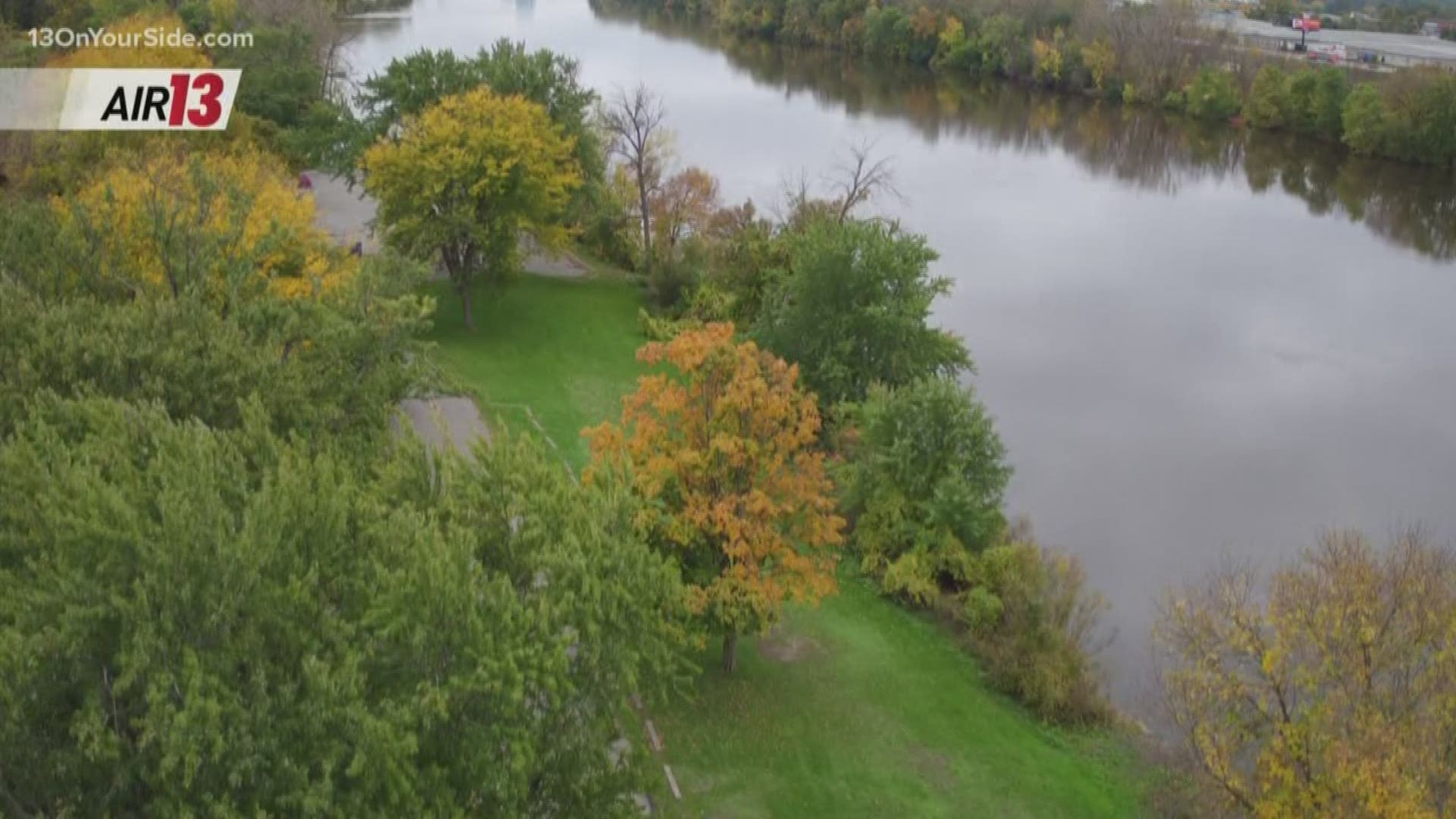GRAND RAPIDS, Mich. — The fall season is already bursting with lots of autumn colors! In this edition of Lessens Lessons, 13 ON YOUR SIDE Chief Meteorologist George Lessens discusses not only how the leaves change color but why.
During the spring and summer leaves are great at taking in sunlight to help plants grow. Chlorophyll is the main player in that process and it makes the leaves look green. In fact, there is so much chlorophyll that it hides the other colors that may be present. Inside leaves are different pigments that look yellow and orange, but a couple of things need to happen for these colors to be revealed.


The first is day length. In the fall, shorter days trigger the tree to stop making food. Leaves are sealed off from the branches and any extra sugars are left behind.
Next, you need a few cooler evenings. This confirms to the tree, that winter is coming and it’s time to go dormant. So it continues to seal off the leaves. It also helps turn the sugars left behind red and purple.


Finally, you need sunshine. Sunny skies burn off the chlorophyll faster than cloudy ones. As it disappears, the brilliant yellows, oranges, reds, and purples are revealed... and we see our fall colors!


But why do leaves change color? No one is exactly sure. It may be to help protect against prolonged sunlight. It may also be to warn away pests or attract insect pollinators. Or it may even be for an evolutionary reason that existed millions of years ago but no longer has a purpose.
Whatever the reason, ‘tis the season for a pretty palette of awesome autumn-ness!
Other stories people are reading on 13 ON YOUR SIDE:
RELATED VIDEO:
►Make it easy to keep up to date with more stories like this. Download the 13 ON YOUR SIDE app now.
Have a news tip? Email news@13onyourside.com, visit our Facebook page or Twitter. Subscribe to our YouTube channel.


